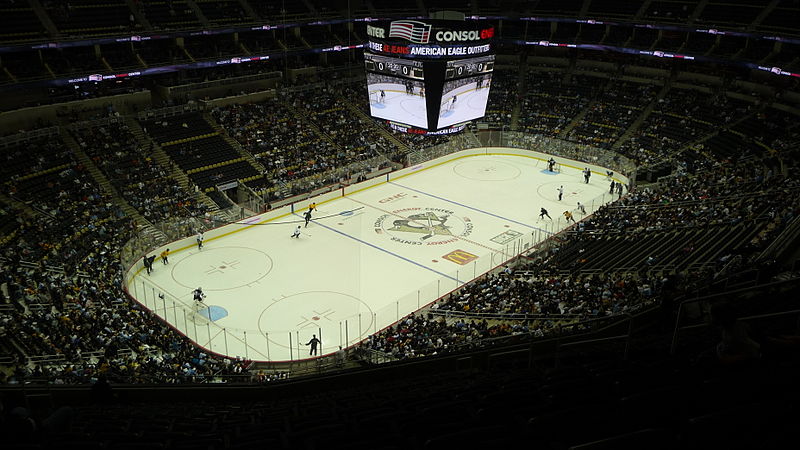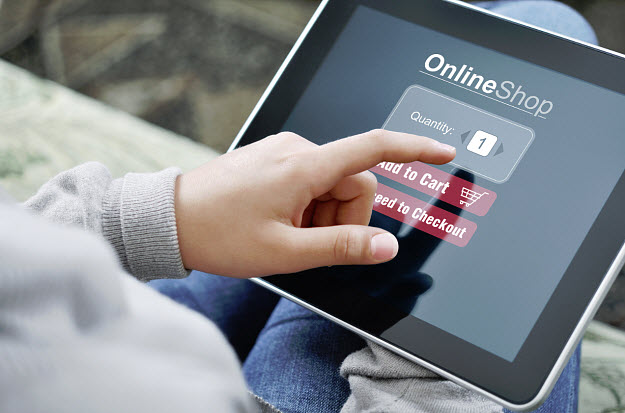This will be the result of a new partnership into which the NHL team has recently entered for this purpose.
The Pittsburgh Penguins NHL team has now entered into a new partnership with Rover, a proximity marketing firm that will be using iBeacon technology to help to enhance the experience for fans.
The idea is to use the geolocation technology in conjunction with the use of the Rover proximity platform.
There is already existing iBeacon tech installed at the stadium and by bringing this together with the proximity platform at Rover, it will become possible to create a beacon-triggered experience for fans. This will send them content that is location specific by way of the Penguins app. Fans who have the app on their smartphones will be able to access exclusive content when they attend games at the CONSOL Energy Center during the length of the 2015 to 2016 season.
As soon as fans with the mobile app step into the arena, the iBeacons will provide an “at the game experience.”
 Once fans are in the arena, the beacon-triggered content is released, greeting the device users with special content. Once they reach the Mario Lemieux statue, an interactive experience is launched and they are provided with various types of discounts and offers for concessions.
Once fans are in the arena, the beacon-triggered content is released, greeting the device users with special content. Once they reach the Mario Lemieux statue, an interactive experience is launched and they are provided with various types of discounts and offers for concessions.
According to Erik Watts, the senior director of technology for the Penguins, “We are excited to partner with Rover. Rover makes it easy for us to deliver relevant content to fans, and provides us with a platform to which we can have input and help develop an experience that is exciting and engaging for our fans and corporate partners.” While they started to successfully use the geolocation technology beacons for the 2014-2015 season, this year they are hoping to be able to “take it to the next level,” with the added advantage provided by Rover.
Rover CEO, John Coombs explained that the company is hoping to eliminate the complexity that is associated with the use of iBeacons and location based marketing, and will continue its evolution on making it simpler to take advantage of the power of this tech.
Denny |
September 11, 2015
Consumers are open to accepting geolocation tech in order to access in-store services.
According to the newly released results of a study conducted by Zebra Technologies in its Corporation Global Shopper Study, shoppers are open to using location based technologies while in store in order to be able to gain access to services and offers that will enhance their experiences.
The study results offer insight into a range of different consumer interests in terms of mobile tech use.
Among the participants in the survey, the majority expressed an interest in using relevant location based technology over a store’s WiFi in order to enhance their shopping experience. Among the types of services in which they expressed interest were mobile coupons (said 51 percent), in-store shopping maps (45 percent), and help from associates (41 percent). This was the eighth annual edition of this study by Zebra Technologies.
The study also showed that location based technology could offer real-time info that shoppers want.
 Among the respondents to this survey, 34 percent said that they felt that they had a better connection with a store through real-time information that they received through mobile devices than they did through the assistance of human associates working in the stores. At the same time, 64 percent of shoppers expressed that there was a greater likelihood that they would buy something if they felt that they were getting better customer services. Moreover, 52 percent of the participants in the research said that they valued retailers that improved the efficiency of the shopping experience through the use of technology.
Among the respondents to this survey, 34 percent said that they felt that they had a better connection with a store through real-time information that they received through mobile devices than they did through the assistance of human associates working in the stores. At the same time, 64 percent of shoppers expressed that there was a greater likelihood that they would buy something if they felt that they were getting better customer services. Moreover, 52 percent of the participants in the research said that they valued retailers that improved the efficiency of the shopping experience through the use of technology.
Over three out of every four shoppers (76 percent) stated that they had a positive feeling about the experience of shopping in brick and mortar stores, and almost half of all consumers believe that technology solutions are assisting retailers in being able to better their shopping experience.
More insight was provided about the potential value of location based technology when it was revealed that 53 percent of consumers said that they “showroomed”, that is, they went to a store in order to have a look at a product, in person, but then bought that same item online. Equally, about a third of shoppers preferred to buy a product online and then pick it up at their nearest retail location, instead of having it shipped.
![]() Once fans are in the arena, the beacon-triggered content is released, greeting the device users with special content. Once they reach the Mario Lemieux statue, an interactive experience is launched and they are provided with various types of discounts and offers for concessions.
Once fans are in the arena, the beacon-triggered content is released, greeting the device users with special content. Once they reach the Mario Lemieux statue, an interactive experience is launched and they are provided with various types of discounts and offers for concessions.
 Among the respondents to this survey, 34 percent said that they felt that they had a better connection with a store through real-time information that they received through mobile devices than they did through the assistance of human associates working in the stores. At the same time, 64 percent of shoppers expressed that there was a greater likelihood that they would buy something if they felt that they were getting better customer services. Moreover, 52 percent of the participants in the research said that they valued retailers that improved the efficiency of the shopping experience through the use of
Among the respondents to this survey, 34 percent said that they felt that they had a better connection with a store through real-time information that they received through mobile devices than they did through the assistance of human associates working in the stores. At the same time, 64 percent of shoppers expressed that there was a greater likelihood that they would buy something if they felt that they were getting better customer services. Moreover, 52 percent of the participants in the research said that they valued retailers that improved the efficiency of the shopping experience through the use of 